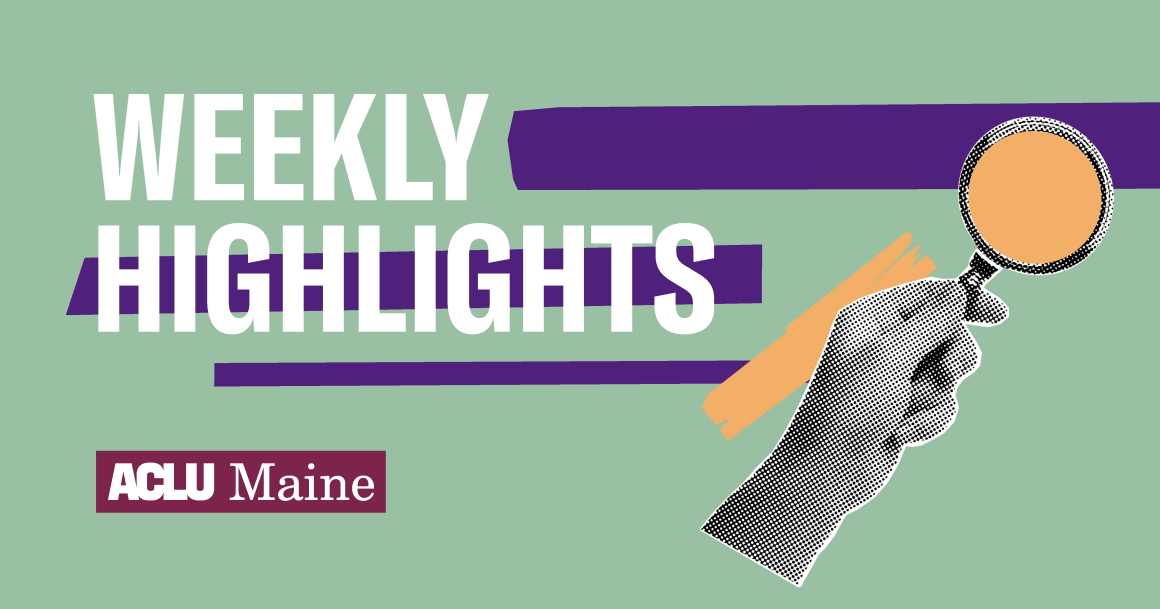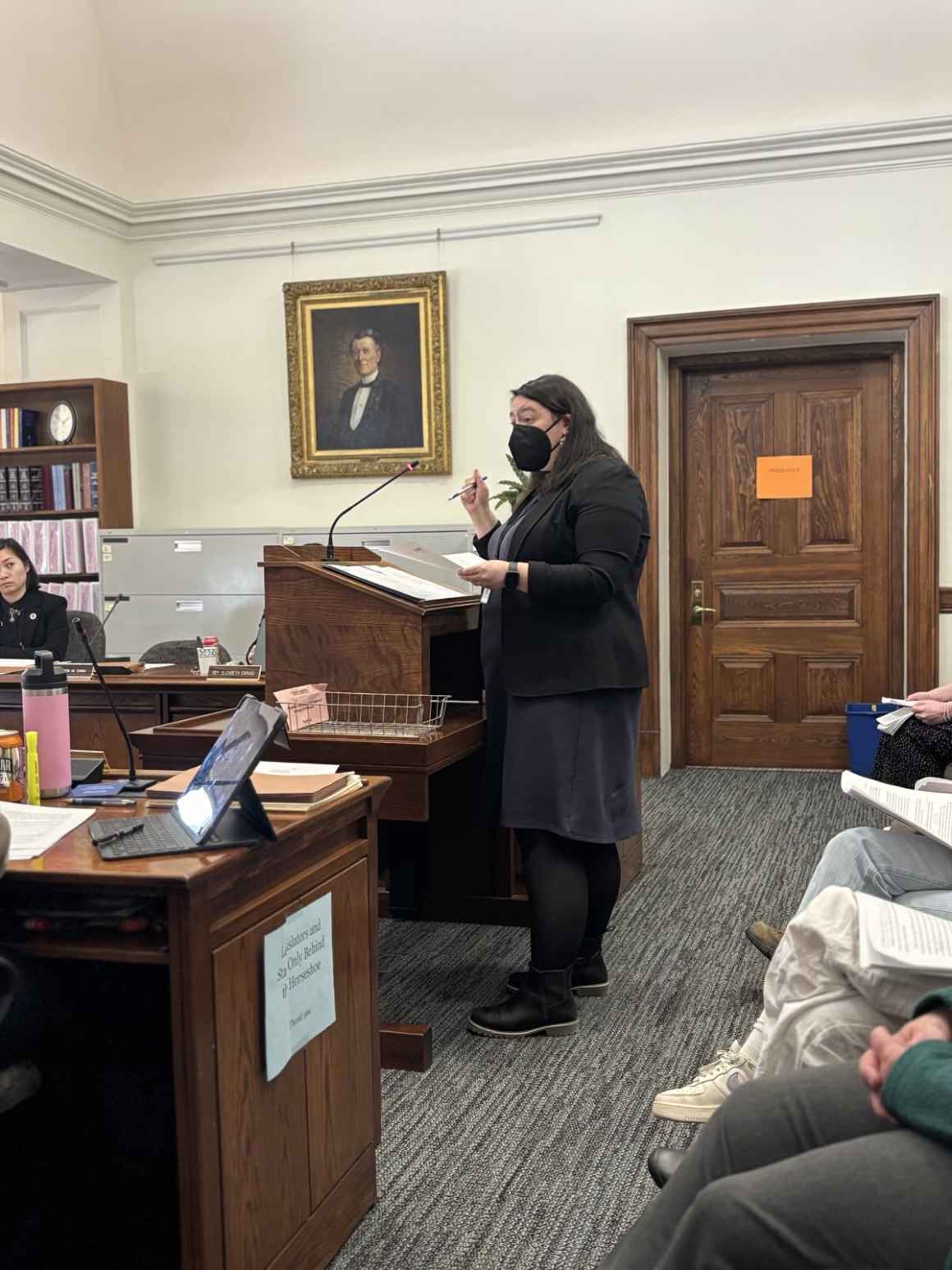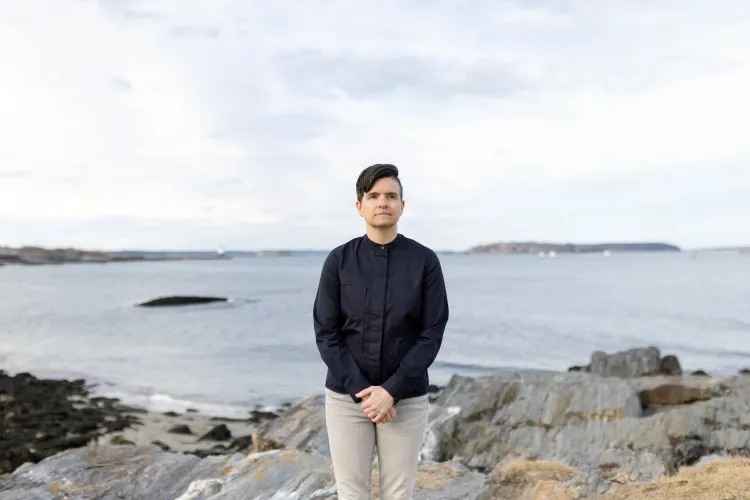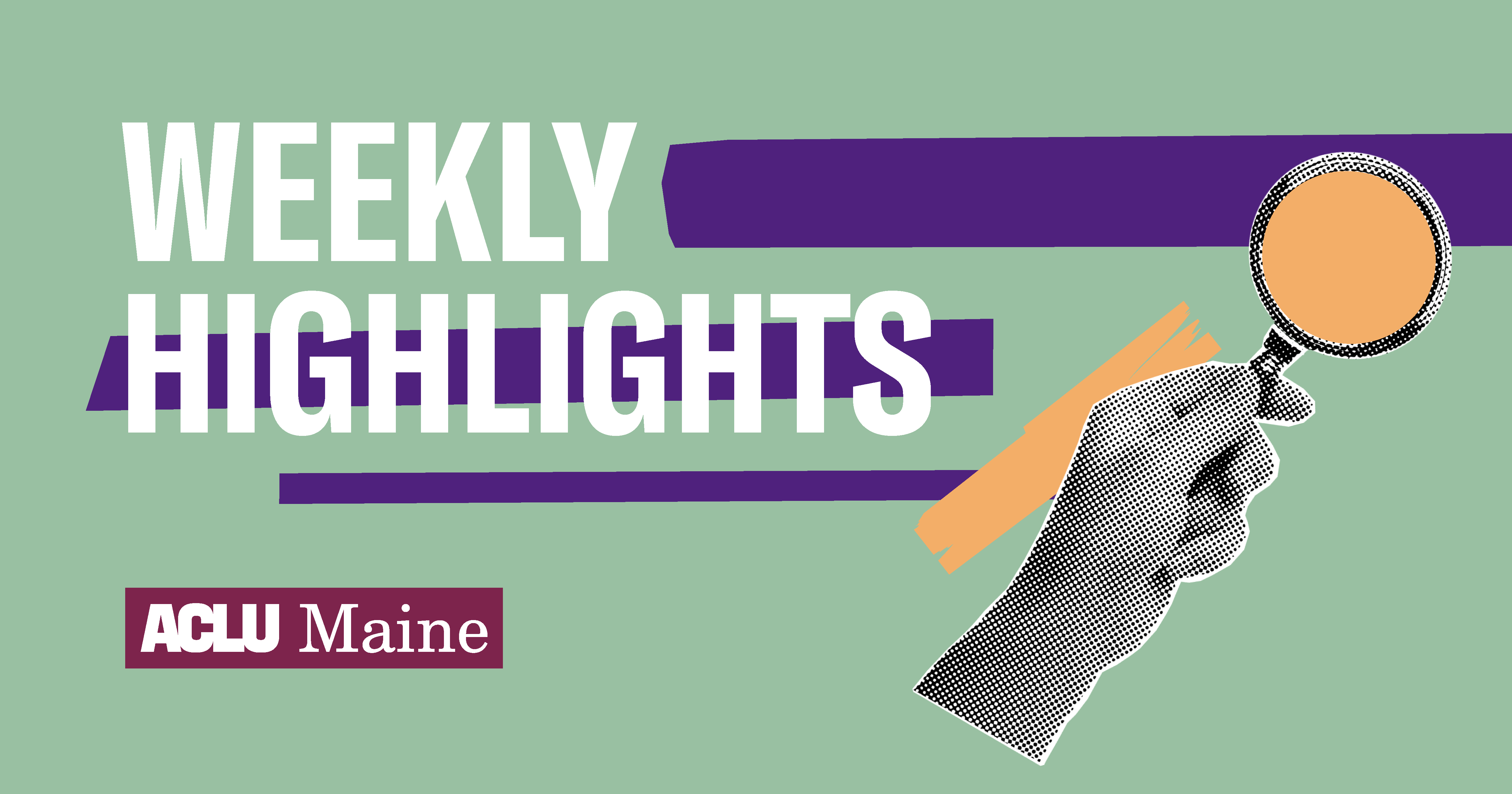This post was originally posted on March 14, 2017 and updated on March 21, 2025.
The government has long claimed that Fourth Amendment protections prohibiting warrantless searches don’t apply at the border. The American Civil Liberties Union takes issue with this position generally, especially when it comes to electronic devices like smartphones and laptops. Our smartphones store detailed accounts of our conversations, professional lives, whereabouts, and web-browsing habits. They paint a far more detailed picture of our private lives than, say, a piece of luggage.
The Supreme Court recognized this reality when it ruled in 2014 that the Constitution requires the police to obtain a warrant to search the smartphone of someone under arrest. As the ACLU has argued in various court filings, there’s no reason the Constitution’s safeguards against unwarranted searches shouldn’t also apply when we travel internationally given the ubiquity of these devices, and their ever-growing capacity to track the minutiae of our private lives.
Unfortunately, the government doesn’t agree, and the law on the matter is far from settled. Because of the high-stakes implications of these kinds of searches, and amidst evidence suggesting they’re on the rise, it’s important to understand the landscape so that you can make decisions that are right for you ahead of your travels.
What happens if border agents demand I turn over my device?
The government claims the authority to search all electronic devices at the border, no matter your legal status in the country or whether they have any reason to suspect that you’ve committed a crime. You can state that you don’t consent to such a search, but unfortunately this likely won’t prevent Customs and Border Protection (CBP) from taking your phone.
If you’ve given CBP agents the password to your device (or if you don’t have one), they might conduct what’s often called a “basic search” on the spot. They might also download the full contents of your device and save a copy of your data. Since 2018, they are not required to return your device before you leave the airport or other port of entry, and they might choose to send it off for a more thorough “advanced” or “forensic” search. Barring “extenuating circumstances,” they claim the authority to hold onto your device for five days — though “extenuating circumstances” is an undefined term in this context, and this period can be extended by seven-day increments. We’ve received reports of phones being held for weeks or even months.
As a result of this policy, even the most universally recognized private information — like communications with your lawyers — are insufficiently protected at the border. If you possess information that is protected by attorney-client privilege, you should tell the CBP agent you’re interacting with. Although CBP policy imposes some limitations, it still permits government employees to search the phone.
Journalists carrying sensitive information about their work or sources are also insufficiently protected. The CBP directive states that “work related information carried by journalists shall be handled in accordance with any applicable federal law and CBP policy” — but it’s unclear what this means. Journalists who feel their rights have been violated at the border should let us know, and those who have upcoming travel should consult with their organizations’ general counsel offices or press associations.
If you leave the airport or other border checkpoint without your device, make sure you get a receipt, which should include information about your device and contact information allowing you to follow up. If, after the forensic search is conducted, there is no probable cause to believe the device contains evidence of a crime, the government says it will destroy any information it copied within 21 days. Yet there’s a caveat here, too. CBP might retain the notes it took during the search of your device or any questioning while you were at the border.
Do I have to enter a password to unlock my device?
Your legal status in the country may inform what you decide to do if you’re asked for a password to unlock your device.
If you’re a citizen, you can’t be denied entry into the country if you refuse to comply with a request to unlock your device or to provide a password. But you might be detained for longer or have your device seized and not returned to you for weeks or months. The same should be true for those who have previously been admitted to the United States as lawful permanent residents and have maintained their status — their green cards can’t be revoked without a hearing before an immigration judge. If you are not a citizen and are concerned about having your devices searched, you should consult with an immigration lawyer about your particular circumstances before traveling.
Visa holders and tourists from visa waiver countries, however, run the risk of being denied entry if they refuse to provide a password, and they should consider that risk before deciding how to proceed.
Whether you’re a citizen or not, though, we always recommend that you enter the password yourself rather than divulging it to a CBP agent. They still might demand that you share it, but it’s a precaution worth trying to take. If you do hand over your password, it’s likely to end up in a government database, so change it as soon as you have the chance and make sure you no longer use that password for any other account.
What can I do to prepare?
Here are a few precautions you can take in preparation for your trip to ensure things go as smoothly as possible:
- Travel with as little data and as few devices as possible. The less you’re carrying, the less there is to search. Consider using a travel-only smartphone or laptop that doesn’t contain private or sensitive information. You could also ship your devices to yourself in advance. (Be aware that CBP claims the authority to search international packages so it is best to encrypt any devices that you ship.) Keep in mind that a forensic search of your device will unearth deleted items, metadata, and other files.
- Encrypt devices with strong and unique passwords and shut them down when crossing the border. A good resource on how to do so can be found here.
- Store sensitive data in end-to-end encrypted cloud-storage account and remove any sensitive data from your device. Disable any apps that connect to cloud-based accounts where you store sensitive communications or files, and don’t keep a copy of cloud-stored data in your physical possession. In July 2017, CBP publicly stated it is against policy for border agents to search cloud-stored data on electronic devices. This means that any search of an electronic device at the border should not extend to data that is only accessible via the internet — such as email or social media messages and posts that are stored on remote servers. Keep in mind that if there are copies of cloud-stored data cached on the device (for example, recent emails), border agents will be able to see that information.
- Upload sensitive photos on your camera to your password-protected laptop or a cloud-storage account. Digital cameras don’t offer encrypted storage, so you should consider backing up your photos and deleting them from your camera and reformatting the camera's memory card.
- Keep devices off. If you must turn them on, ensure that they are in airplane mode, with both wifi and bluetooth disabled, before crossing a border checkpoint. CBP stated in July 2017 that its policy does not permit searches of cloud-stored data that is accessible from electronic devices through the internet. Keeping your devices in airplane mode will help ensure compliance with this policy.
- Let officers know if you have privileged material on your device. The 2018 CBP Directive on border device searches requires certain procedures to be followed before border officers can search attorney-client or attorney work product materials. If you have any privileged or sensitive material on your device, tell the border officers before they begin any search.
Until the Supreme Court weighs in on the constitutional limits of the government’s powers at the border, questions about the government’s authority to conduct these kinds of searches aren’t likely to be settled. Lower courts have issued conflicting rulings on whether individualized suspicion should be a condition for such a search. The Ninth Circuit, which covers several western states, for example, requires at least reasonable suspicion that the device contains digital contraband for a “forensic” search of a seized device, but has not imposed an individualized suspicion requirement for “cursory” on-the-spot searches. The Fourth Circuit, which covers several mid-Atlantic states, requires reasonable suspicion that the phone contains evidence of a border-related offense for a forensic search. The Eleventh Circuit, which covers three southeastern states, imposes no limits at all.
It is crucial that more courts weigh in, given that device searches at the border seem to be on the rise. CBP reports that in 2023, more than 41,000 electronic devices were searched, a huge jump from the 8,503 devices that were searched in 2015. With border officials increasingly exercising authorities that haven’t been sufficiently considered by the courts, the urgency for clear protections mounts. In the meantime, travelers should take the precautions they feel are right for them.
This resource offers a basic snapshot of possible scenarios relating specifically to electronic device searches. For a fuller picture of the many other civil liberties issues that often arise at the border, click here.
Date
Tuesday, March 25, 2025 - 10:45amFeatured image







